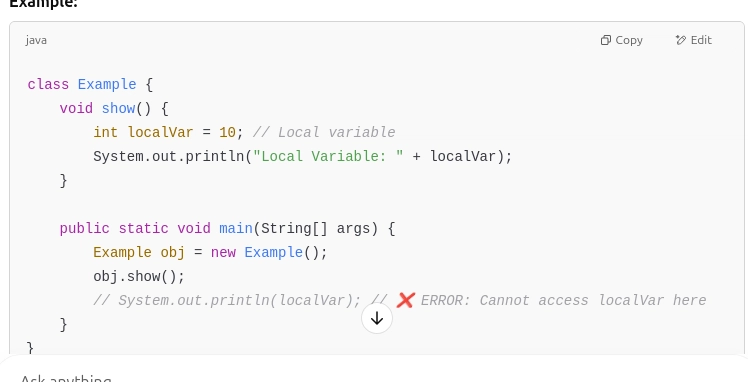Property accessor overloading: bypassing private properties
In TypeScript, a parent class can declare a private property like this: abstract class Test { private data: string; } Although a child class cannot access this property directly, it can still do so using a getter method: abstract class Test { private data: string; // Getter method public getData() { return this.data }; } Wouldn't it be awesome if you could use property accessor overloading to read the property instead? abstract class Test { private data: string; ... // Property accessor overloading public data() { return this.data; } } Or even better abstract class Test { private data: string; ... // Property accessor overloading public get data() { return this.data; } } Unfortunately, this is not possible in TypeScript. Attempting it will result in a TS2300: Duplicate identifier 'data' error. In PHP, however, this can be achieved using the magic methods __get and __set: class Test { private string $data = "Hello, World!"; public function __get(string $name) { return $this->data; } public function __set(string $name, $value) { $this->data = $value; } } And you could then use the Test object to retrieve the private property: $test = new Test(); $test->data; // Returns "Hello, World!" // Override the data property $test->data = "New value"; This is a clear demonstration of property accessor overloading. It makes sense because you might want to at least read the property, even if it is private. However, using accessor overloading to modify a private property could be considered bad practice in some cases, as it undermines encapsulation. In C#, you can achieve similar behavior using the indexer feature or explicit properties with the get and set accessors. Here's how it works: class Test { private string data = "Hello, World!"; public object this[string property] { get => data; set => data = value as string; } } Now, you can access data as if it were a dynamic property: Test test = new Test(); test["data"]; // Returns "Hello, World!" // Override the data property test["data"] = "New value"; Unlike TypeScript, C# allows this kind of property accessor overloading using indexers. While this approach works, it should be used with caution, as it can reduce code clarity, or even defeat the purpose of encapsulation in private properties.

In TypeScript, a parent class can declare a private property like this:
abstract class Test {
private data: string;
}
Although a child class cannot access this property directly, it can still do so using a getter method:
abstract class Test {
private data: string;
// Getter method
public getData() { return this.data };
}
Wouldn't it be awesome if you could use property accessor overloading to read the property instead?
abstract class Test {
private data: string;
...
// Property accessor overloading
public data() {
return this.data;
}
}
Or even better
abstract class Test {
private data: string;
...
// Property accessor overloading
public get data() {
return this.data;
}
}
Unfortunately, this is not possible in TypeScript.
Attempting it will result in a TS2300: Duplicate identifier 'data' error.
In PHP, however, this can be achieved using the magic methods __get and __set:
class Test
{
private string $data = "Hello, World!";
public function __get(string $name) {
return $this->data;
}
public function __set(string $name, $value) {
$this->data = $value;
}
}
And you could then use the Test object to retrieve the private property:
$test = new Test();
$test->data; // Returns "Hello, World!"
// Override the data property
$test->data = "New value";
This is a clear demonstration of property accessor overloading. It makes sense because you might want to at least read the property, even if it is private. However, using accessor overloading to modify a private property could be considered bad practice in some cases, as it undermines encapsulation.
In C#, you can achieve similar behavior using the indexer feature or explicit properties with the get and set accessors. Here's how it works:
class Test
{
private string data = "Hello, World!";
public object this[string property]
{
get => data;
set => data = value as string;
}
}
Now, you can access data as if it were a dynamic property:
Test test = new Test();
test["data"]; // Returns "Hello, World!"
// Override the data property
test["data"] = "New value";
Unlike TypeScript, C# allows this kind of property accessor overloading using indexers. While this approach works, it should be used with caution, as it can reduce code clarity, or even defeat the purpose of encapsulation in private properties.











































































































































































![[The AI Show Episode 142]: ChatGPT’s New Image Generator, Studio Ghibli Craze and Backlash, Gemini 2.5, OpenAI Academy, 4o Updates, Vibe Marketing & xAI Acquires X](https://www.marketingaiinstitute.com/hubfs/ep%20142%20cover.png)




























































































































![[DEALS] The Premium Learn to Code Certification Bundle (97% off) & Other Deals Up To 98% Off – Offers End Soon!](https://www.javacodegeeks.com/wp-content/uploads/2012/12/jcg-logo.jpg)


![From drop-out to software architect with Jason Lengstorf [Podcast #167]](https://cdn.hashnode.com/res/hashnode/image/upload/v1743796461357/f3d19cd7-e6f5-4d7c-8bfc-eb974bc8da68.png?#)








































































































.png?#)

































_Christophe_Coat_Alamy.jpg?#)
 (1).webp?#)





































































































![Apple Considers Delaying Smart Home Hub Until 2026 [Gurman]](https://www.iclarified.com/images/news/96946/96946/96946-640.jpg)
![iPhone 17 Pro Won't Feature Two-Toned Back [Gurman]](https://www.iclarified.com/images/news/96944/96944/96944-640.jpg)
![Tariffs Threaten Apple's $999 iPhone Price Point in the U.S. [Gurman]](https://www.iclarified.com/images/news/96943/96943/96943-640.jpg)




































































































































